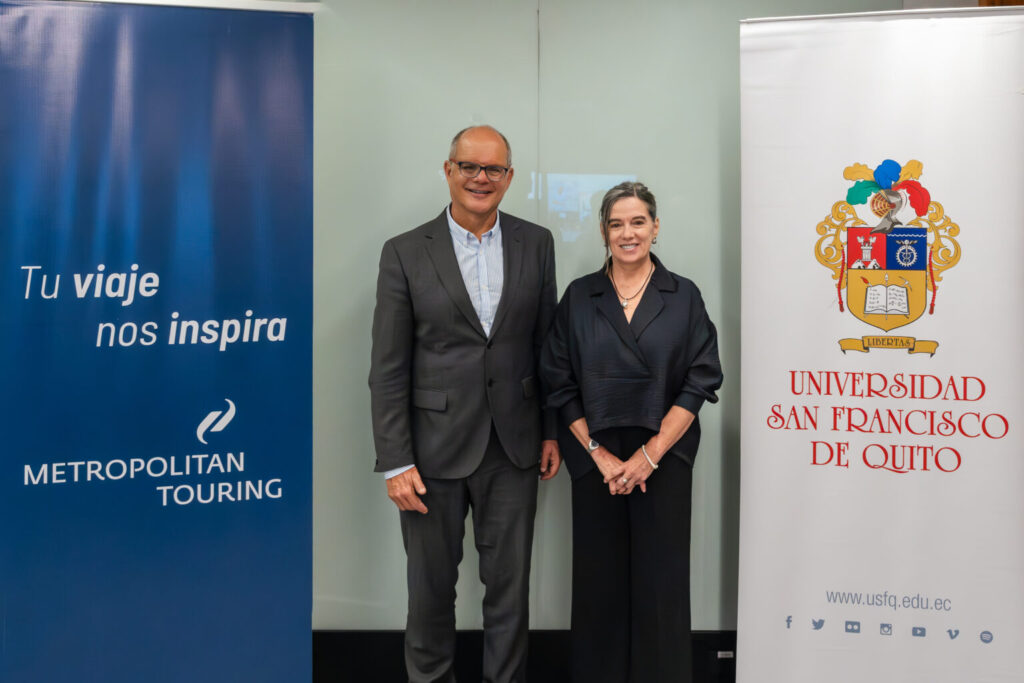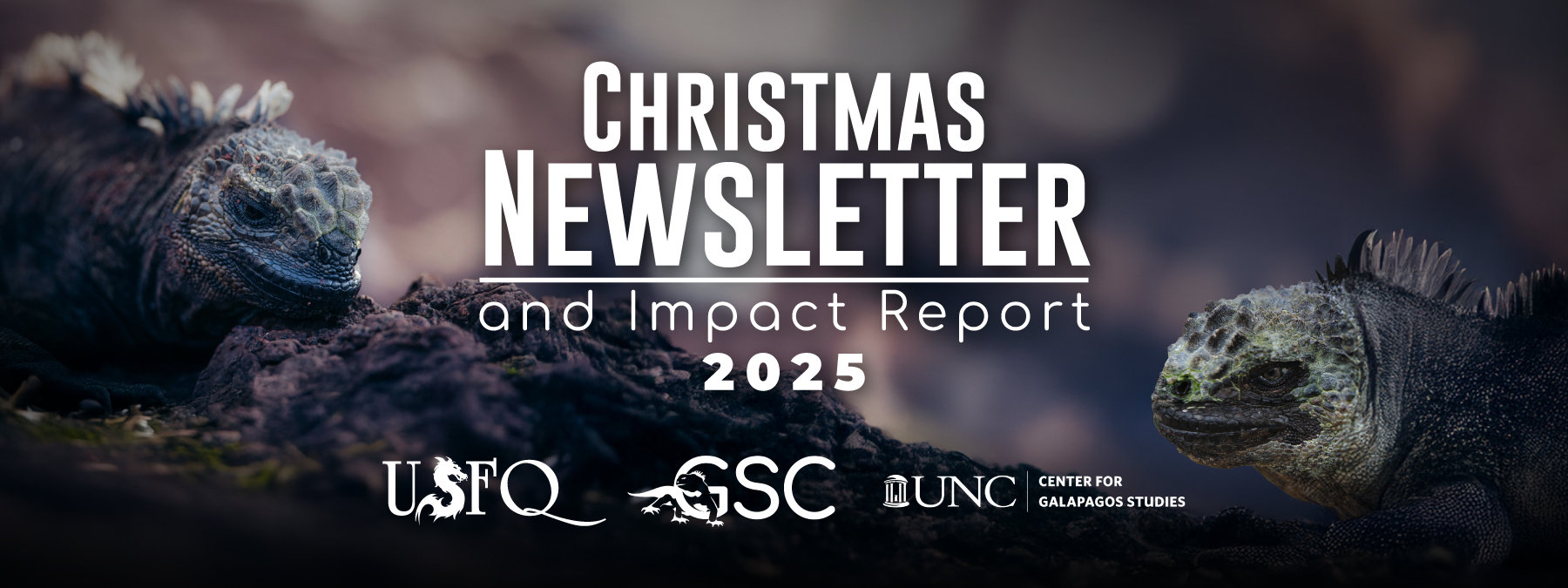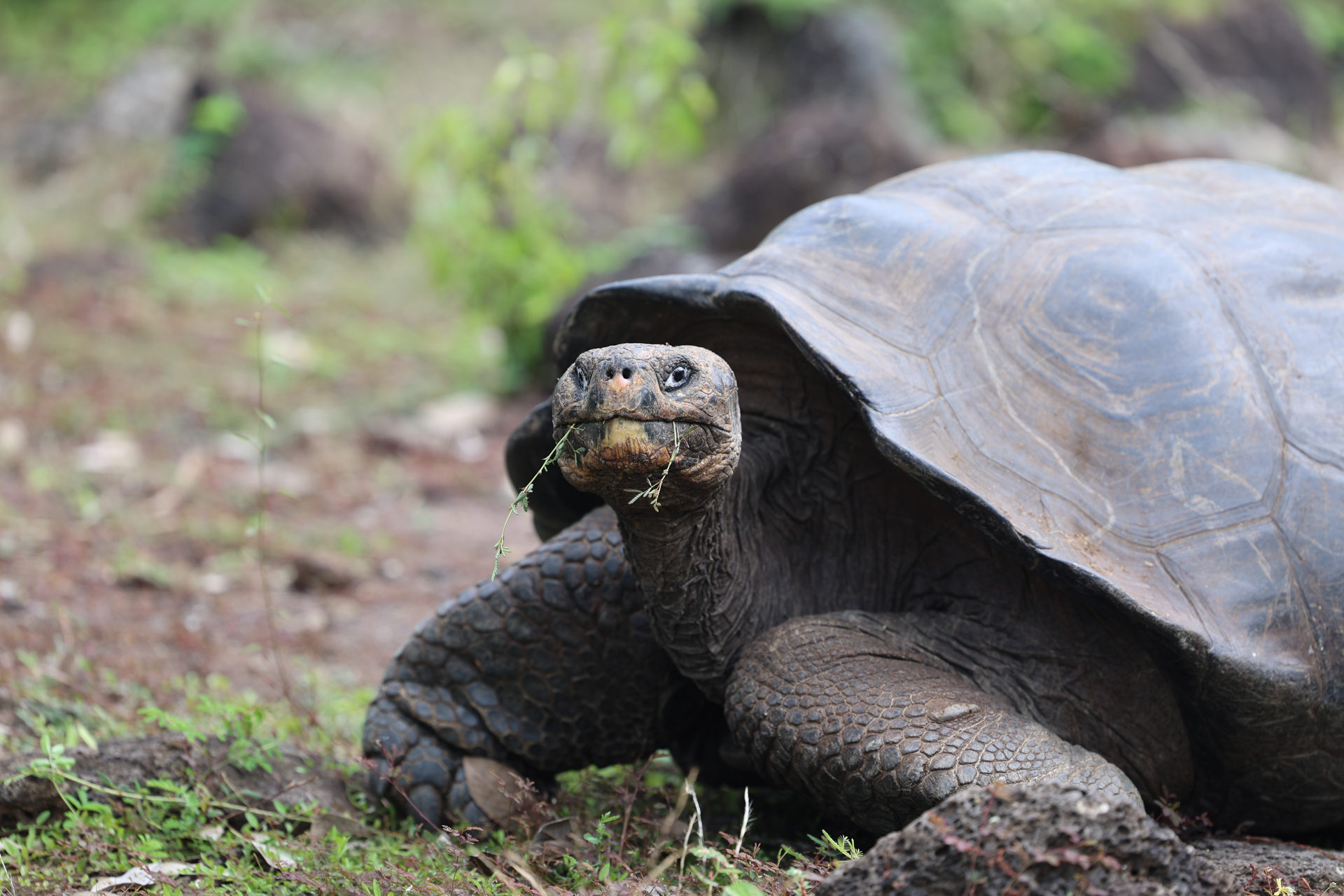Universidad San Francisco de Quito (USFQ) and Metropolitan Touring have signed a collaboration agreement for the conservation of the whale shark, the world’s largest fish. This partnership reaffirms the commitment of both institutions to sustainability and the protection of the biodiversity of the Galápagos Islands. The initiative is being carried out in coordination with the Galápagos National Park Directorate (GNPD), the authority responsible for protecting the archipelago’s unique ecosystems.
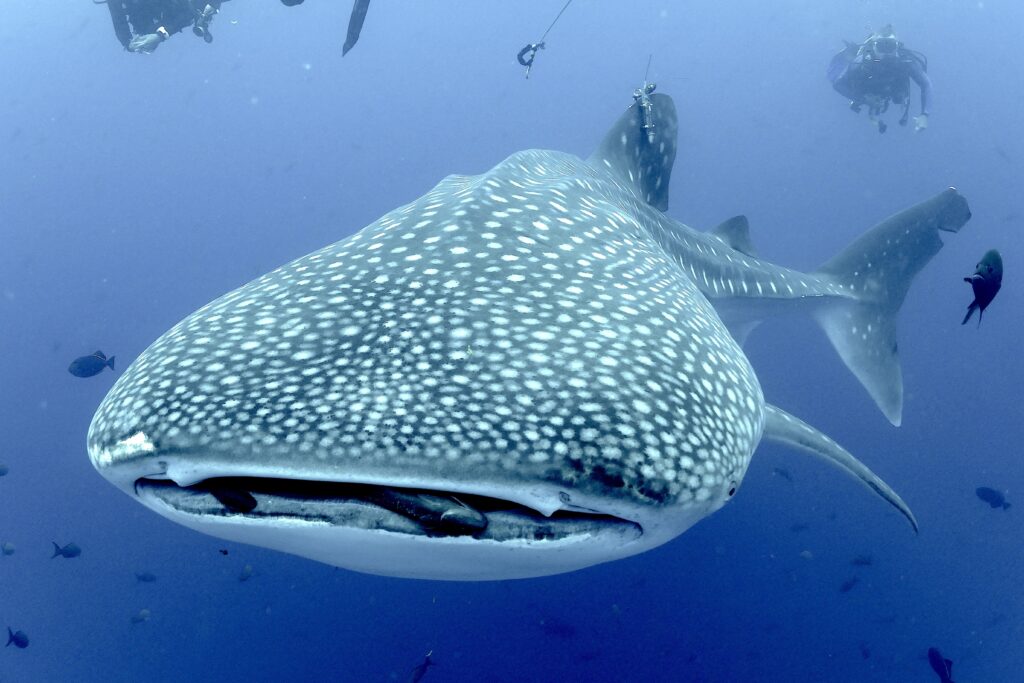
Titled the “Whale Shark Conservation Project,” the agreement represents a milestone in scientific and academic cooperation in Ecuador. It focuses on studying the migratory routes of this iconic species, aiming not only to map its movements but also to understand the reasons behind its travels through and around the archipelago providing critical data for its conservation and management.
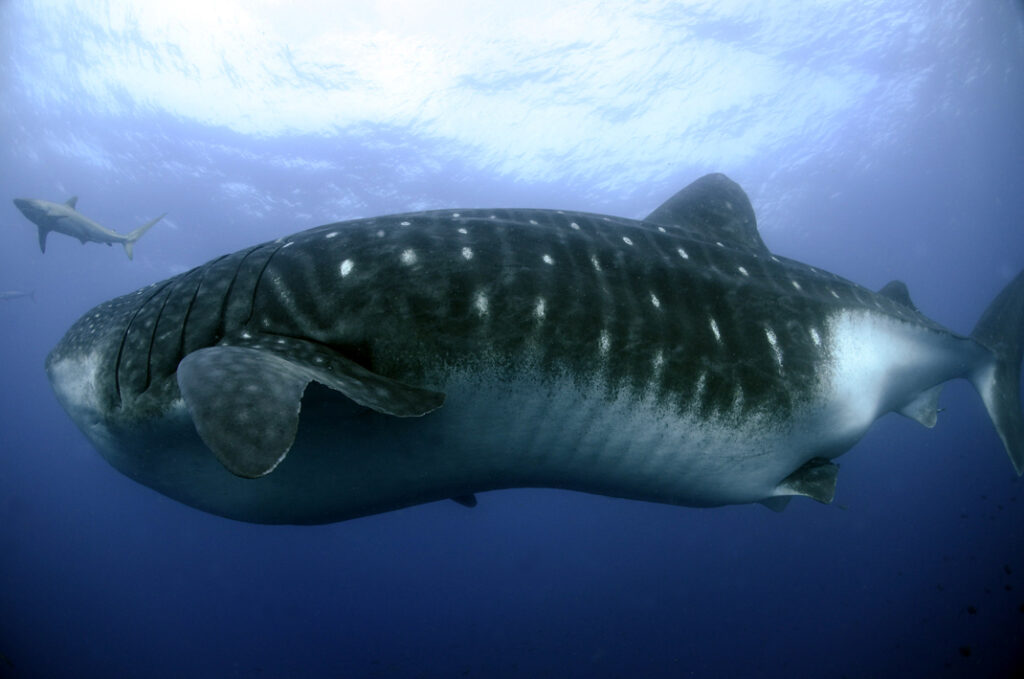
Photo: Jonathan R Green.
The project seeks to track the complete migratory route of the whale shark and analyze its movement patterns in Galápagos and surrounding areas. Research activities include photo identification and satellite tagging, allowing scientists to track individual sharks from their arrival at the southern volcanic islands early in the year, their connection with Darwin Island, and their potential journey toward the continental coast before returning to the archipelago. This study is part of the Galápagos Whale Shark Project, a multi-institutional initiative that has been working for over a decade to understand the ecological role of Galápagos for this species.
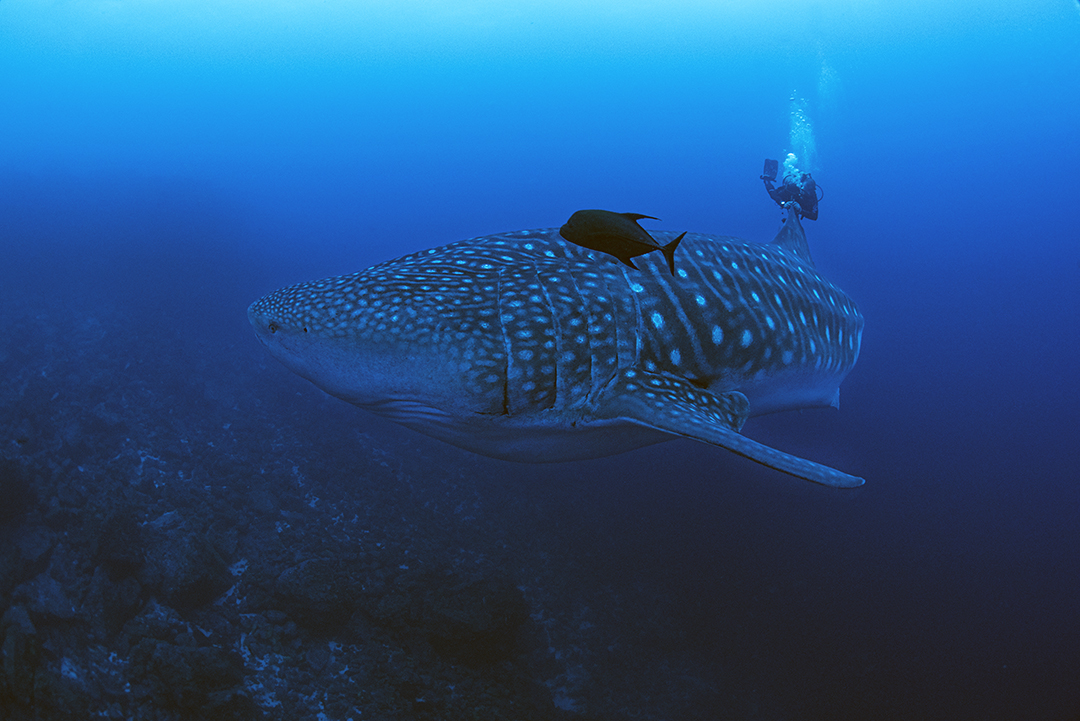
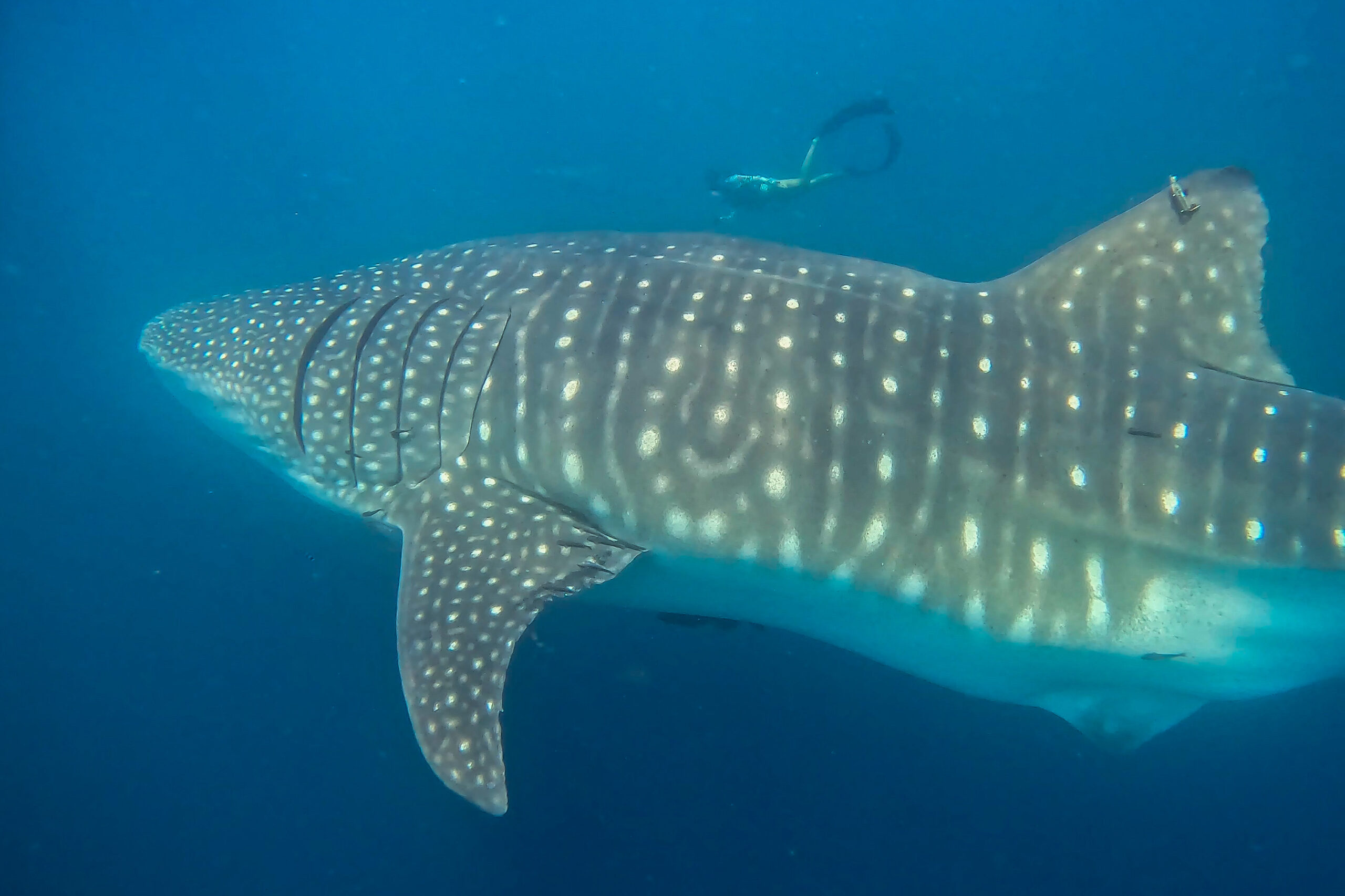
Photo: Martín Narváez.

